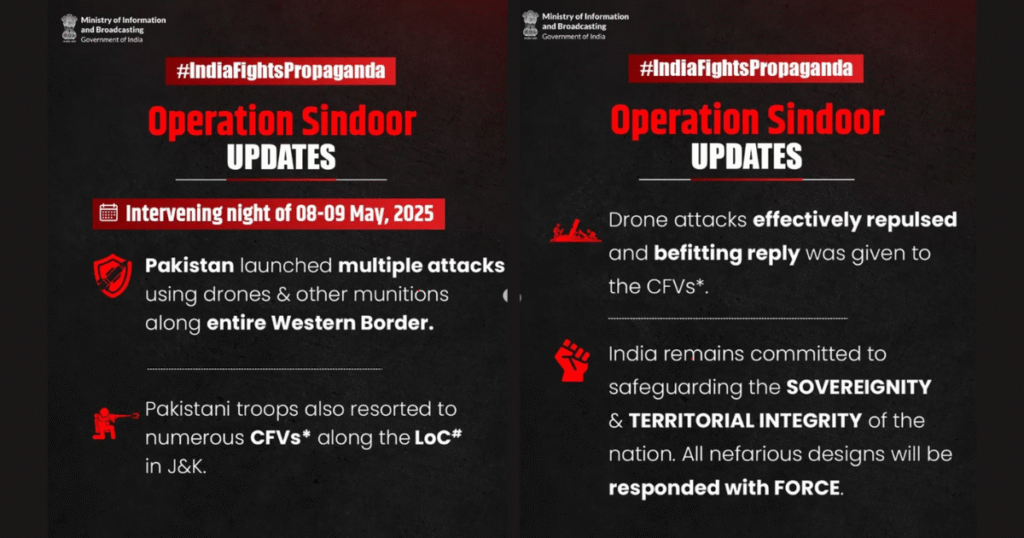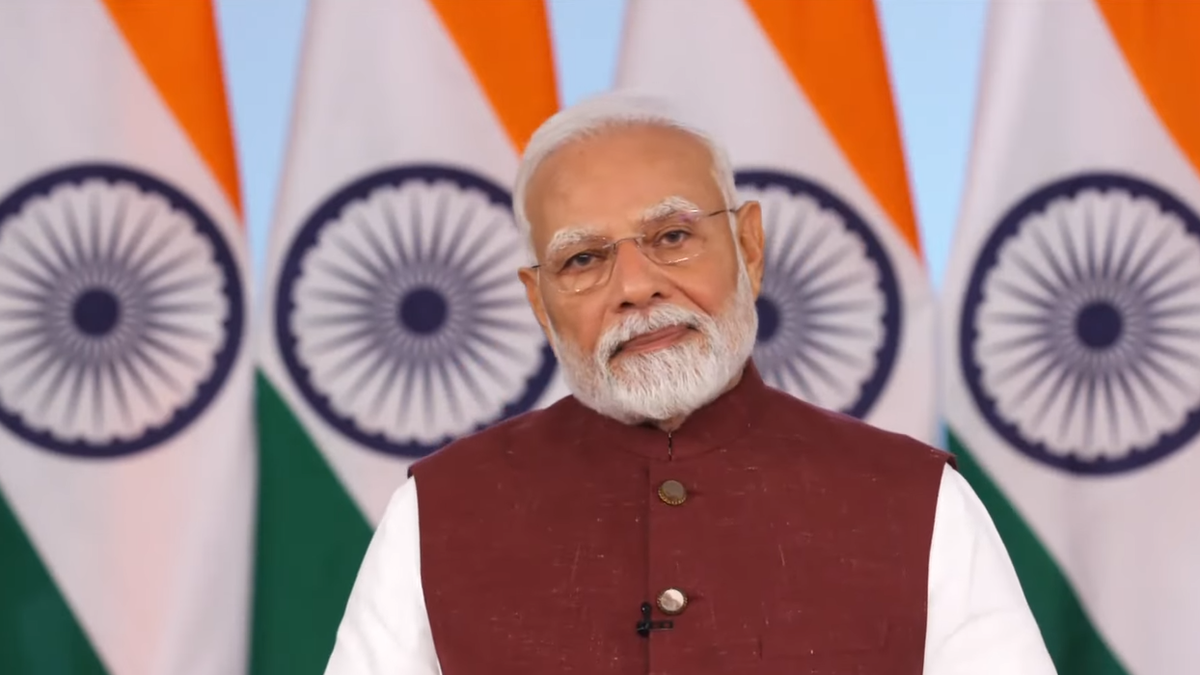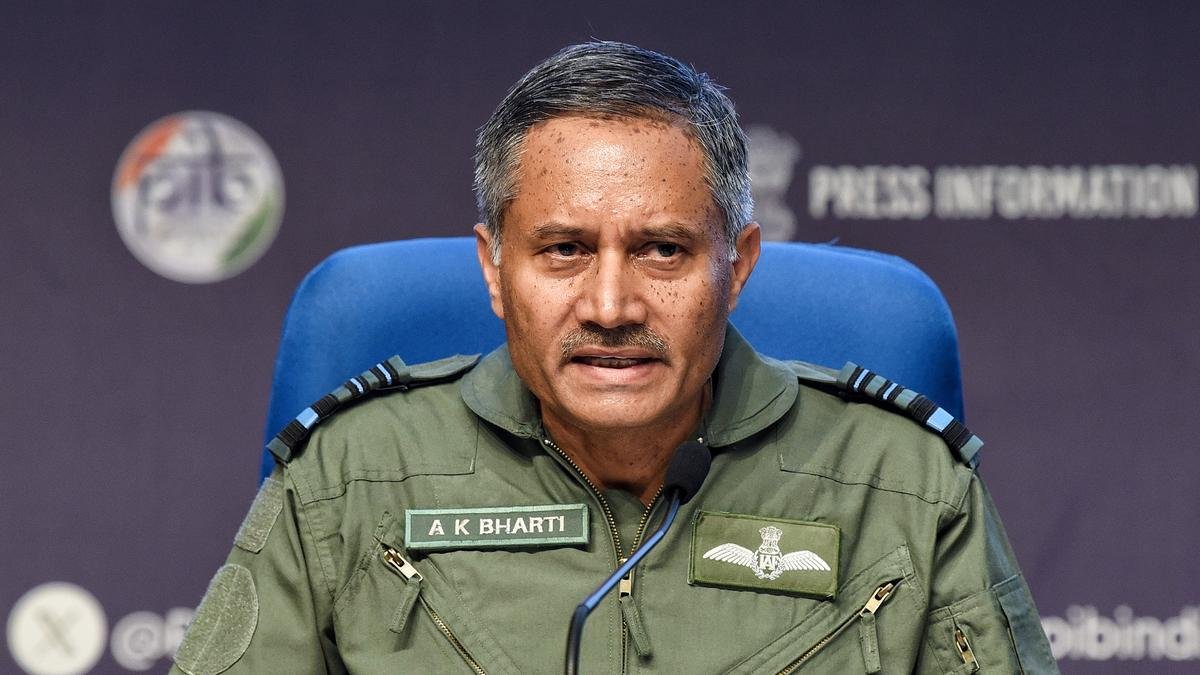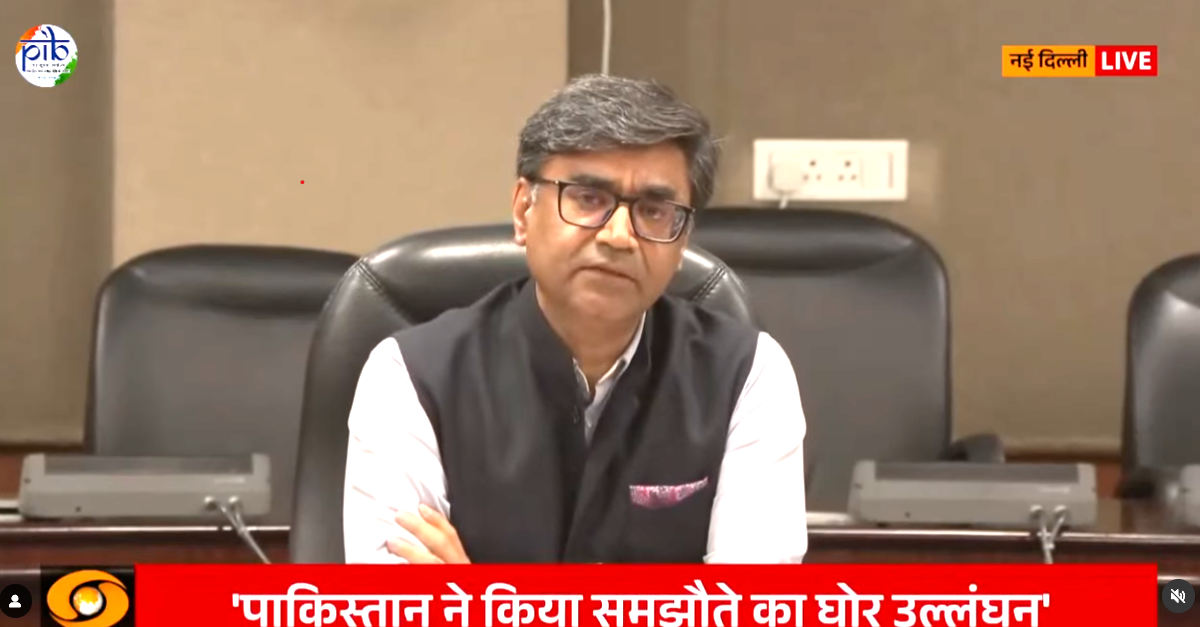Operation Sindoor: A Calculated Response to Terror
On May 7, 2025, India launched “Operation Sindoor,” a series of precision strikes targeting nine terrorist camps in Pakistan and Pakistan-occupied Kashmir (PoK). This decisive action was in retaliation for the Pahalgam terror attack on April 23, where 27 individuals, including 25 Hindu tourists, were killed. The Indian Air Force (IAF) utilized Rafale jets equipped with SCALP missiles and AASM Hammer bombs, while the Army deployed SkyStriker loitering munitions. The operation, lasting 23 minutes, was described by Indian officials as “focused, measured, and non-escalatory,” specifically targeting infrastructure of groups like Jaish-e-Mohammed and Lashkar-e-Taiba.
Pakistan’s Retaliation and India’s Defense
In response, Pakistan attempted to infiltrate Indian airspace with approximately 300-400 drones, reportedly of Turkish origin. Indian defense systems, including the S-400 missile system, successfully intercepted these drones, preventing significant damage. Additionally, Pakistan launched drone and missile strikes targeting multiple Indian cities, including Amritsar and Jammu. However, India’s robust air defense mechanisms thwarted these attacks, showcasing the country’s preparedness and resilience.
Nationwide Security Measures and Civil Defense
Anticipating further escalations, India initiated “Operation Abhyaas,” a nationwide civil defense drill on May 7. This exercise encompassed 244 districts, involving air raid siren tests, blackout simulations, and emergency response training for civilians. The Ministry of Home Affairs directed all states and Union Territories to invoke emergency powers under civil defense rules to ensure efficient implementation of precautionary measures.
Diplomatic and Economic Repercussions
The conflict’s ripple effects extended beyond military engagements. India suspended the Indus Waters Treaty and expelled Pakistani diplomats, while Pakistan retaliated by suspending the Simla Agreement and closing its airspace to Indian aircraft. The Kartarpur Corridor, a significant religious passage, was also shut indefinitely amid rising tensions.
Impact on Daily Life and Economy
The escalating conflict disrupted daily life and economic activities. Delhi Airport witnessed the cancellation of over 90 flights, and the Indian Premier League (IPL) 2025 was suspended indefinitely due to security concerns. States like Delhi, Punjab, and Rajasthan canceled leaves of government employees to ensure readiness for any emergencies.
International Reactions and Calls for De-escalation
The international community expressed concern over the escalating tensions. While some nations urged restraint, others, like Turkey and Azerbaijan, expressed support for Pakistan, leading to calls within India for boycotts of these countries. Notably, U.S. Vice President JD Vance stated that the India-Pakistan conflict is “fundamentally none of our business,” indicating a stance of non-intervention.
Conclusion
Operation Sindoor marks a significant chapter in the ongoing India-Pakistan tensions, reflecting India’s commitment to counter-terrorism and national security. As both nations navigate this complex landscape, the emphasis remains on safeguarding sovereignty while striving for regional stability.





